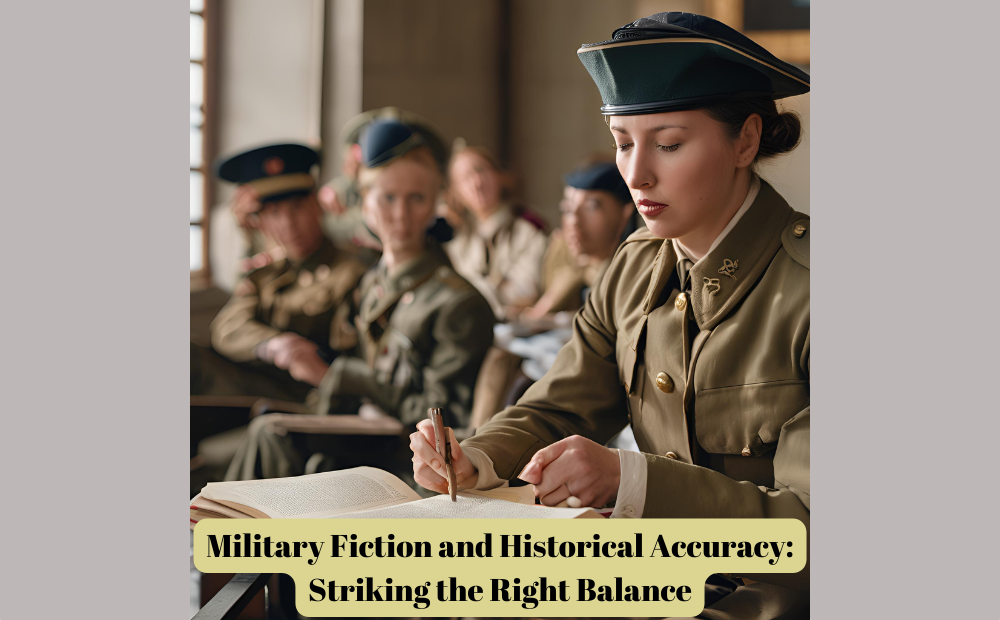Introduction: The Intriguing Intersection of Military Fiction and Historical Accuracy
Military fiction and historical accuracy go hand in hand. The main reasons? War is a prominent part of history, to quote an author Cormac mccarthy from Blood Meridian “War was always here, before man was war waited for him” This quote encapsulates the entire story of humankind, we have always sought out war and war has always sought us out.
The Allure of Military Fiction Books
So what is the allure of something as chaotic, destructive and depraved as war? Part of it comes from the fascination or rather the morbid curiosity with the unknown. Since people live in a time of relative prosperity and peace we no longer have to worry about trying to survive in a brutal war because countries no longer go to war to the same degree they once did. Many also have idealized notions about war and see it as a glorious endeavour filled with adventure and great fun. War however is a far more complex topic that deals as much with the humans engaging in the barbarism as it does with the politics of the conflict.
Role of Research in Crafting Military Fiction
When you intend on writing a powerful military fiction novel, it is best to conduct indepth research into how that book needs to be paced as well as what the scale of the conflict will be. It’s better to start with a look into previous works that have covered war, such as famous war novels a good example would be “All Quiet on the Western Front” Erich Maria Remarque and also Storm of Steel by Ernst Jünger. Now both these books are fundamentally polar opposites. They contrast each other in various ways but are both part of the military fiction genre while also including historical accruacy. All quiet on the western front is a book about war, but while it’s a book about war it’s inherently anti war. It’s a book that covers the subject matter in a very fascinating way, the message that the reader gets from the book is “war is hell”, to put it succintly. However Stom of Steel is a novel that shows the glorious and almost holy endeavour that war can be for some soldiers, as it’s more of a memoir rather than a military fiction book however some events are obviously sensationalized. Tonally both books are different but both are telling a similar story taking place under the same conditions and the same war that being the Great War or World War 1 as it is now known.
The Creative License in Military Fiction
The creative license refers to the artists ability to sensationalized creatively change or stifle the way the actual events in history were when writing a story based on an historical event such as war. War stories are often at their best when they aren’t just a simple retelling of history and its events but rather when they are allowed to express a story that resonates with an audience who wishes to feel something for the heroes, whether the heroes and villains are defined clearly or not is at the discretion of the author and what he feels is necessary to tell a compelling story. The creative license expands on the idea that an artists creative vision should not be hampered by reality.
Reader Expectations: Navigating Historical Accuracy and Storytelling
Reader expectations are guided by the type of reader that reads the book and their expectations are set by the way the book is marketed. If it’s supposed to be marketed as an accurate retelling of a time from history, than the reader will be someone will who is well versed in the war and will probably have more than a basic rudimentary knowledge of the events and the combatants within the conflict. On the other hand if the book is shown to be a tale of bombastic action and glorious excitement then the type of reader who will want to read it will be someone who just wishes to escape into a sort militaristic escapism. It’s important to know the audience and craft the book accordingly.
Conclusion: Crafting Compelling and Accurate Military Fiction
Military strategy books, military fiction books and books about war are stories that are trying to discuss an event but with different strategies and tactics used. A good story is a good story regardless of what the overall subject matter is. The thing about war stories or books about war is that they tend to focus a great deal on a subject that fascinates a huge amount of the population
